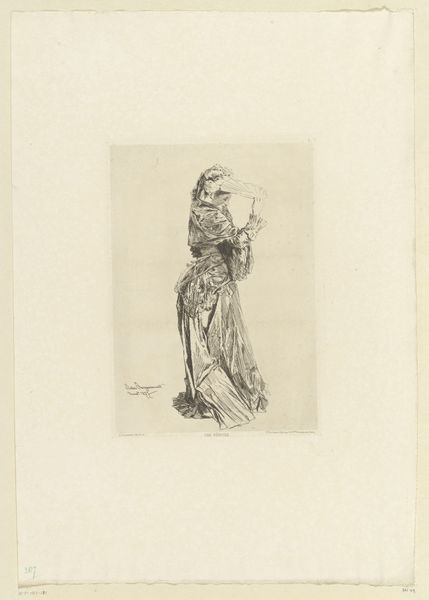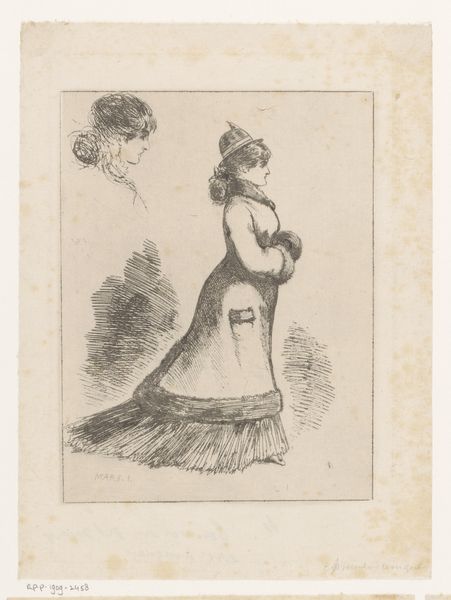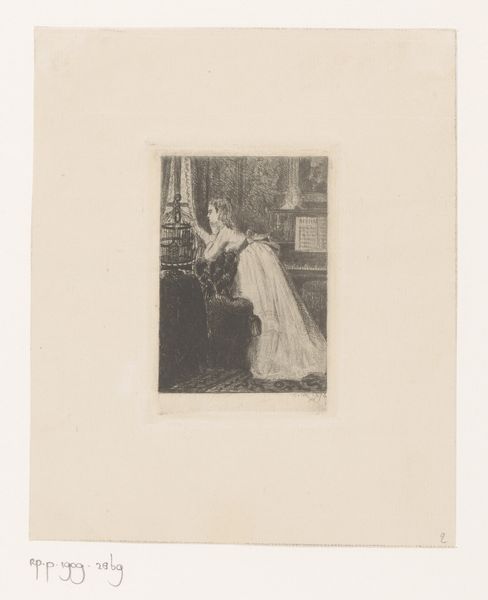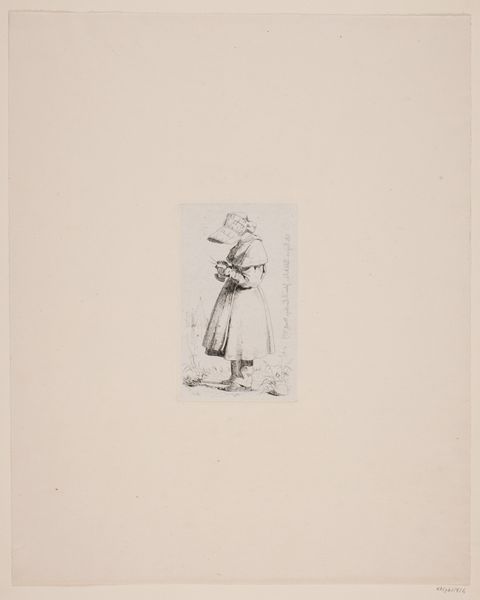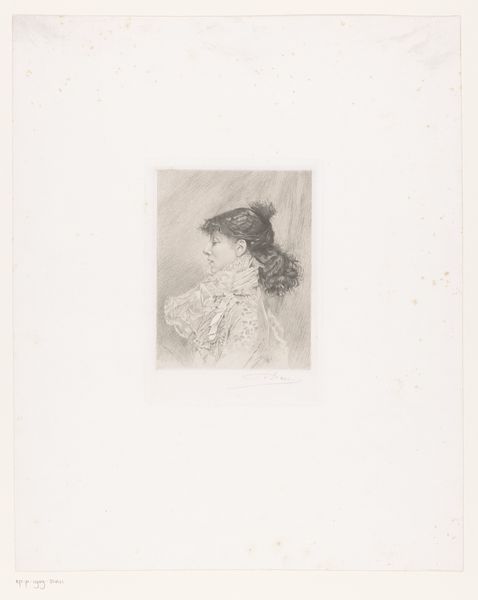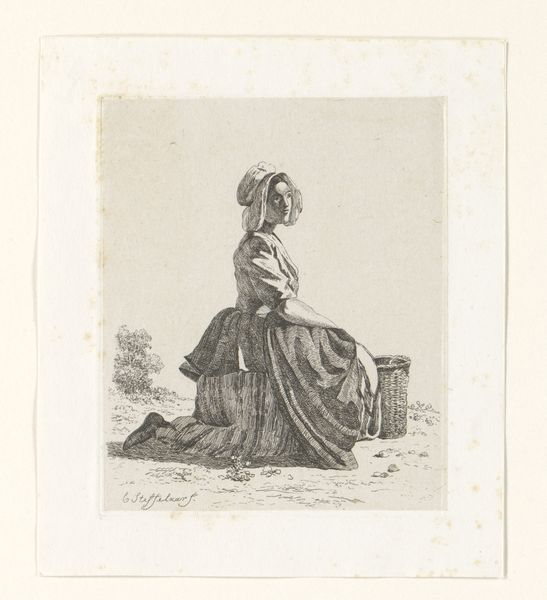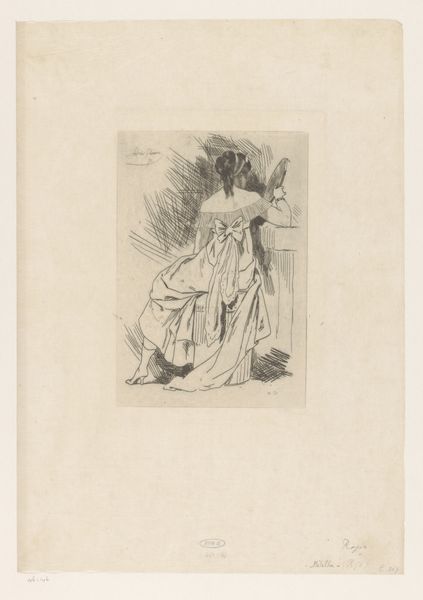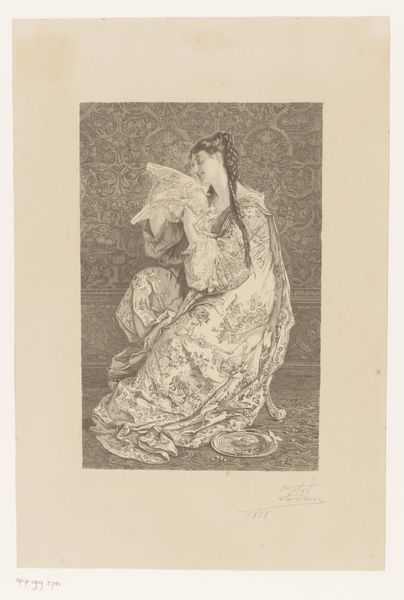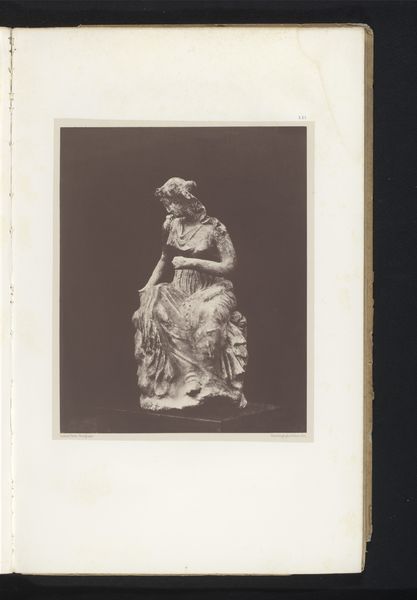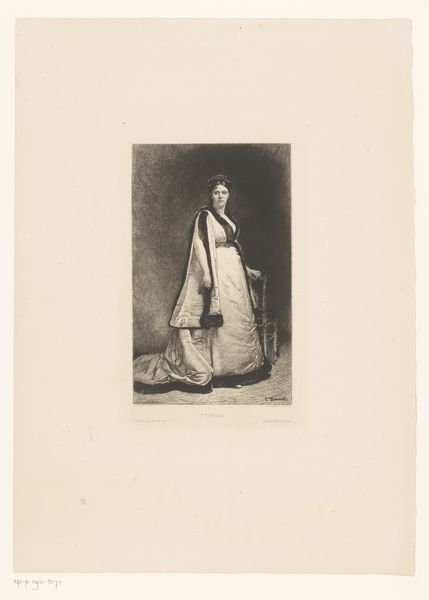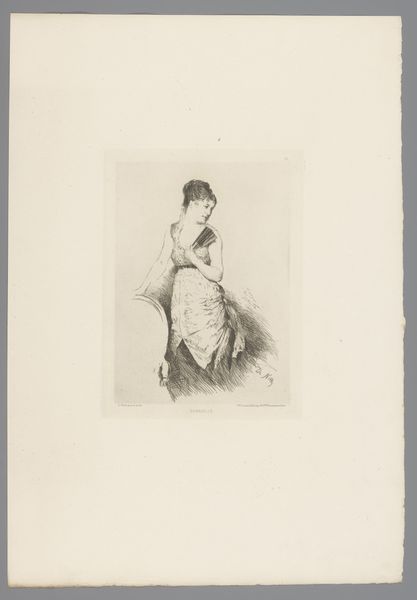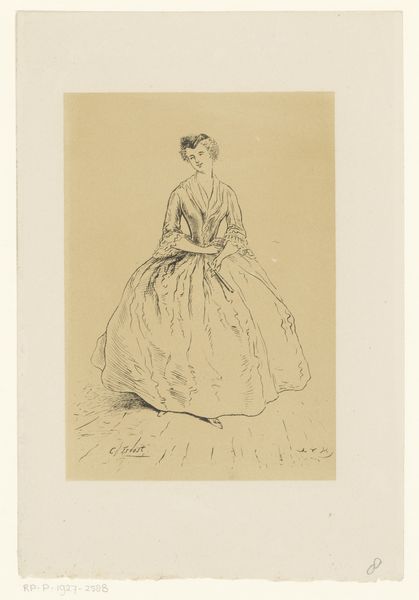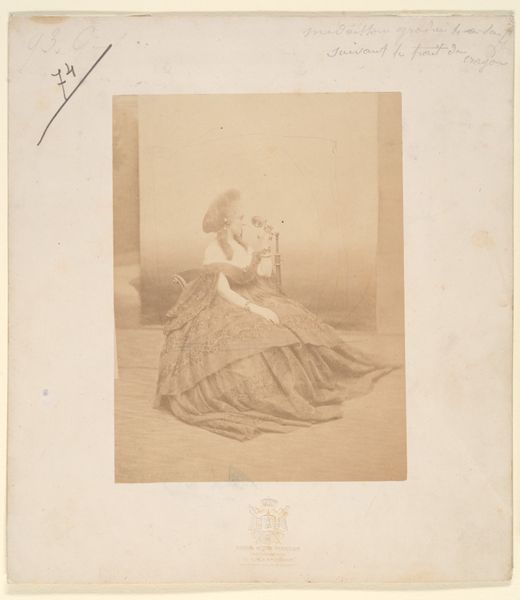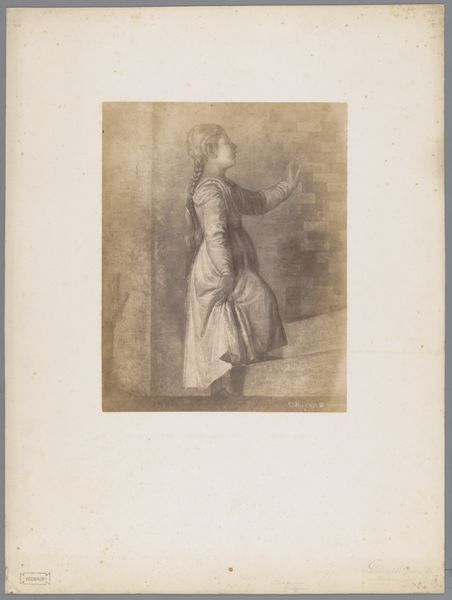
#
photo of handprinted image
#
toned paper
#
light pencil work
#
pencil sketch
#
old engraving style
#
personal sketchbook
#
ink colored
#
sketchbook drawing
#
pencil work
#
watercolour illustration
Dimensions: height 255 mm, width 162 mm
Copyright: Rijks Museum: Open Domain
This engraving from around 1700 by Johann Salver, presents us with a portrait of Egilward, a bishop of Würzburg. Engravings like this one played a crucial role in shaping historical memory and constructing authority in the period. The visual codes of ecclesiastical power are all here: the formal pose, the clothing, the careful detail. Produced in the German-speaking lands during the Baroque era, this print reflects the complex interplay between religious authority and artistic patronage. Bishops like Egilward were not only spiritual leaders but also significant political figures, wielding considerable influence. Portraits like this one served to reinforce their status and project an image of power and piety. Consider the institutional history: prints like this were often commissioned and circulated within religious circles, reinforcing a specific vision of the church and its leaders. As historians, we can look to archival sources, religious texts, and studies of Baroque art to understand the full significance of this image. The meaning of this artwork is contingent on its social and institutional context.
Comments
No comments
Be the first to comment and join the conversation on the ultimate creative platform.
